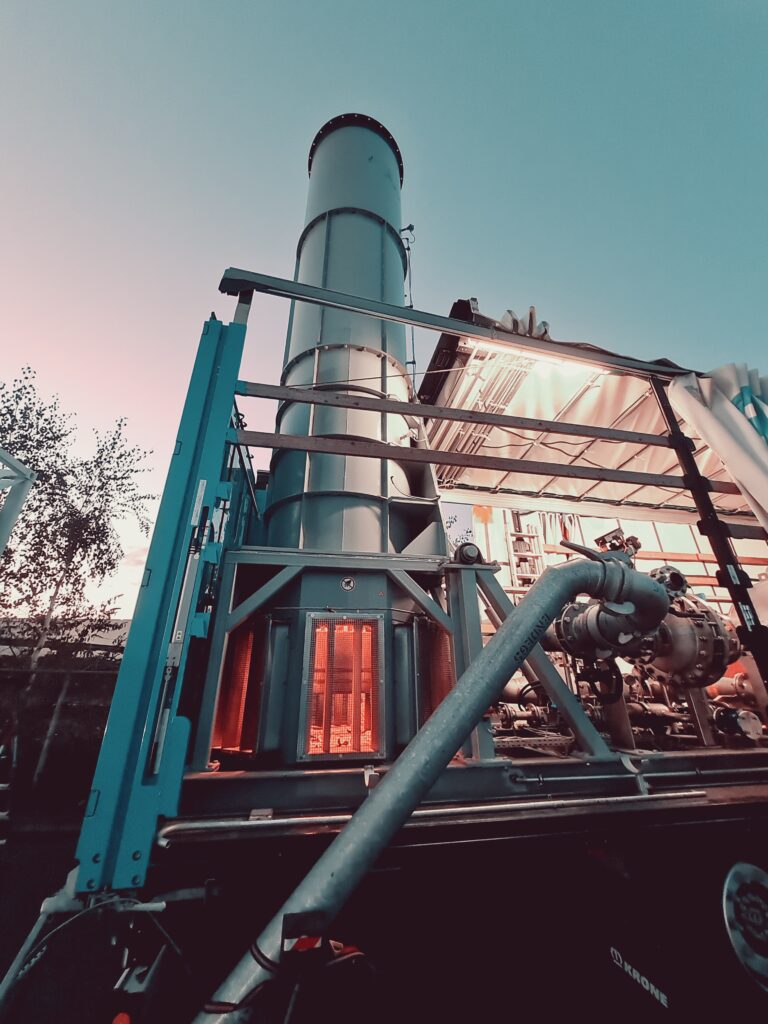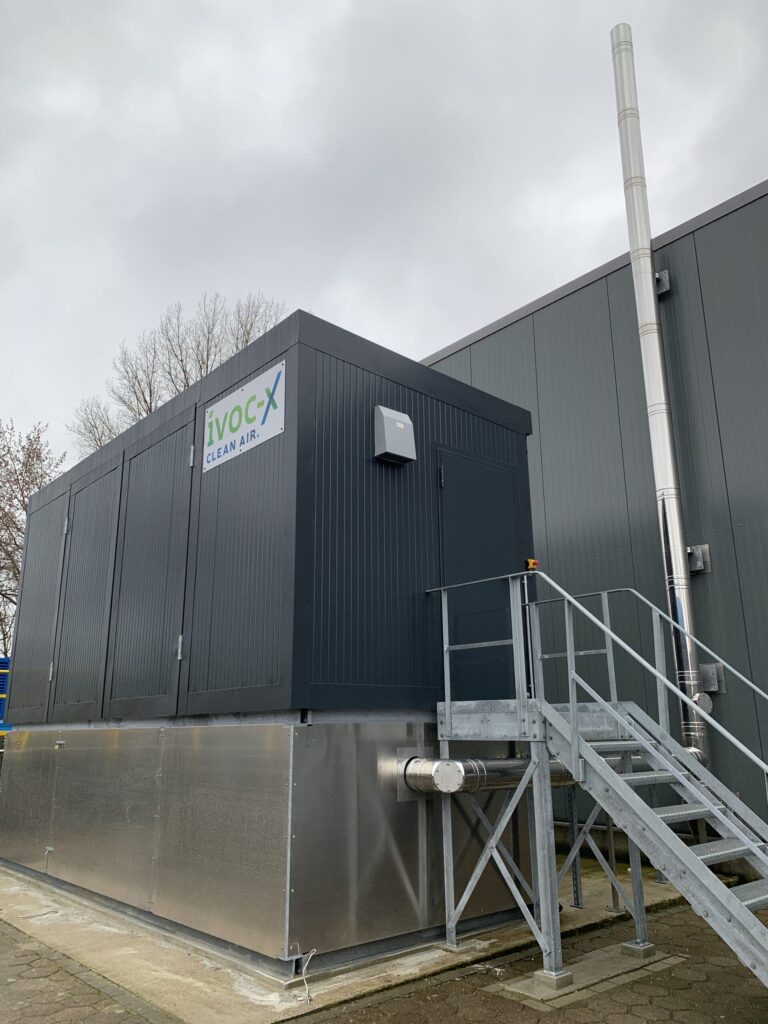Decarbonisation in the industry – why is it so important?

Industrial decarbonisation is an important factor in achieving global climate targets such as net zero and climate-neutrality by 2050 and increasing climate protection and health protection. Despite initial successes, industrial companies and plants still contribute significantly to greenhouse gas emissions (GHG) – for example through burning fossil fuels, releasing VOC and HAP emissions or the inadequate treatment of exhaust gases. In particular, the emission of gases with a high greenhouse warming potential (GWP) factor causes considerable damage to the environment. Many industrial processes produce gases, vapors and polluted exhaust air. However, these harmful emissions can be significantly reduced through innovative environmental technologies and decarbonisation.
What does decarbonisation mean?
Decarbonisation refers to the reduction of greenhouse gas emissions – particularly carbon dioxide (CO2) and methane (CH4). GHG are released during many industrial processes and have a high GWP factor. The aim of industrial decarbonisation is to minimize the carbon footprint of industrial companies and to reduce the impact of the industrial sector on the climate by reducing the release of harmful emissions and air pollutants.
Why is decarbonisation so important?
The impact of industrial emissions is far-reaching:
- Climate change: CO2 emissions contribute to global warming, increasing extreme weather events such as heatwaves, floods and storms.
- Air quality and health: Pollutants in the air, including particular matter, VOC and nitrogen oxides, affect the air we breathe and can lead to health problems. Better air quality protects health and safety.
- Safety: The uncontrolled release of hazardous gases can pose risks to occupational safety and neighboring communities. The use of emission-reducing technologies minimizes these risks and ensures a safe working environment.
Consistent decarbonisation of the industry therefore protects not only the climate, but also health and safety.
How can companies and plants contribute to decarbonisation?
Innovative environmental technologies offer industrial companies from various sectors an effective solution for reducing emissions and air pollutants without interfering with the processes. Polluted exhaust air can even be partially converted into usable energy. The following technologies for removing pollutants and reducing emissions in the air play a key role in industrial decarbonisation:
- Mobile degassing reduces the emission of industrial gases and vapors directly at the source – in industrial facilities such as tank farms, refineries or production plants. By treating exhaust gases and residual gases and destroying them almost completely in an environmentally-friendly manner, environmental pollution is significantly reduced and air quality and safety are improved. Mobile degassing systems and vapor combustion units can be transported easily as trailers and containers and are therefore extremely flexible to use – directly where emissions occur in industrial plants.
- Temporary replacement provision makes it possible to uphold plant operations without interruption if stationary emission reduction systems such as vapor recovery units (VRU) need to be shut down temporarily. The mobile systems take over the tasks of the VRU and treat the resulting gases, vapors and emissions. This guarantees environmentally-friendly and safe processes even during downtime of a VRU, without the need to shut down the entire plant.
- Industrial exhaust air purification prevents the release of pollutants such as VOC, fine dust and particles. By using systems for air pollution control, pollutants can be removed with almost 100% efficiency. The pollutants are destroyed by thermal or catalytic processes and also converted into freely available heat flow. Exhaust air purification systems can be applied in various industries and processes, for example for chemical, pharmaceutical, laser, plastics, printing or coating applications.
- Room air purification maximizes the air quality in closed rooms where the air is 10 to 40 times worse than outside. Air purification systems ensure healthy and clean air in enclosed spaces such as offices or conference rooms.


Industrial decarbonisation: sustainability is key
The decarbonisation of the industry is therefore an important factor for greater sustainability and environmental protection. Without effective measures to reduce industrial emissions, air pollution, climate change and health risks will remain a major challenge. Environmental technologies such as mobile degassing solutions or efficient exhaust air purification systems play a crucial role in minimizing harmful emissions and air pollutants, improving the air quality and making industrial processes more sustainable.
ETS Degassing offers mobile degassing solutions and replacement services that safely treat emissions directly at the source. ETS Air Systems specializes in air purification technologies that filter pollutants from industrial exhaust gases and convert them into usable energy. Both companies focus on innovative and efficient technologies that help industrial companies to reduce their emissions and fulfil legal environmental requirements.
With the targeted use of these solutions and environmental technologies, companies can not only improve their environmental footprint, but also reduce costs and remain competitive in the long term. Industrial decarbonisation is no longer an issue for the future – it is a necessity in order to combine economic success with sustainable responsibility.
